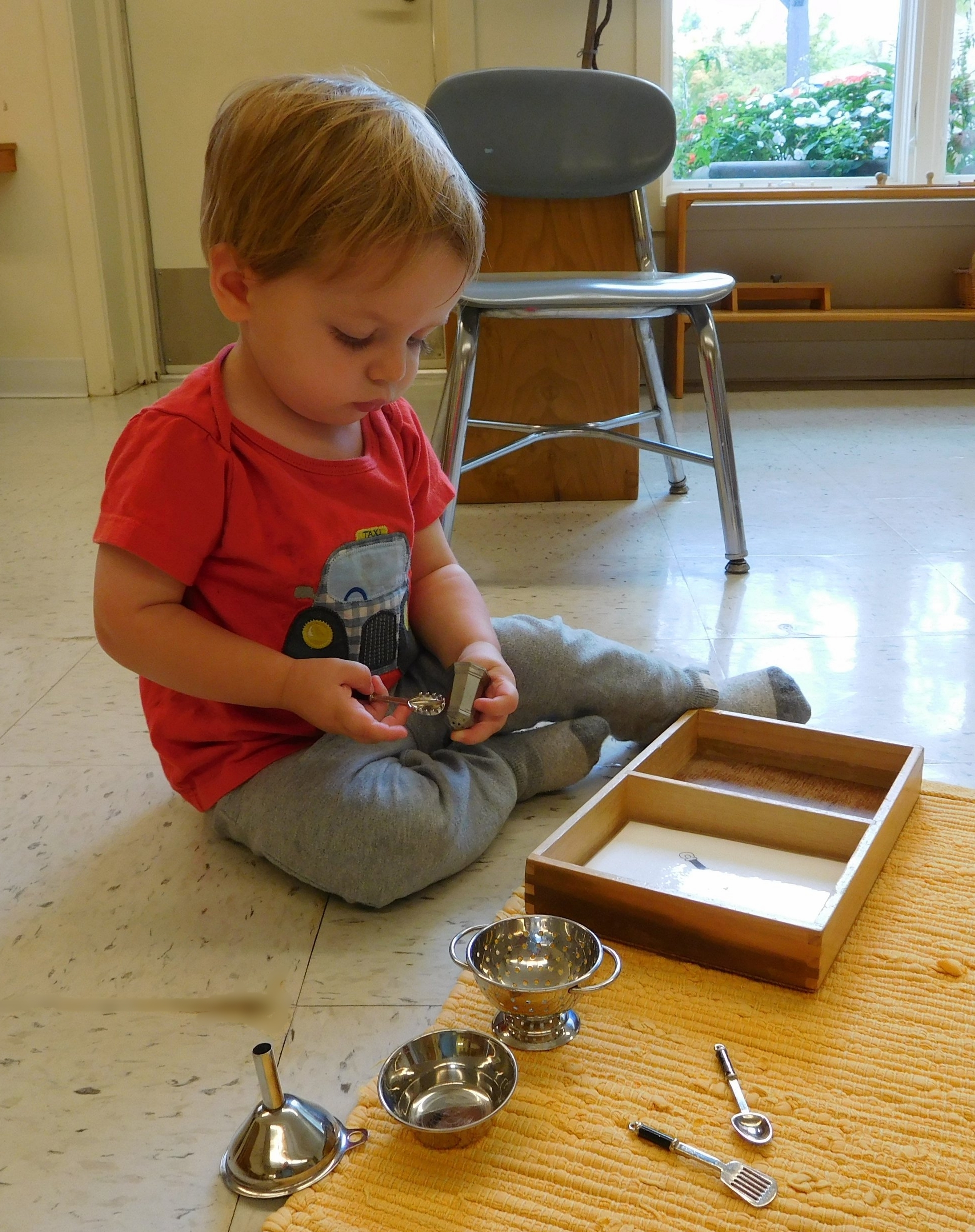The Programs
The Montessori philosophy proposes that children learn best in age groupings that span a few years. As in a family, the role-modeling of the older child inspires the younger child in the next step of personal development and skill refinement. Both children have the benefit of working and learning from each other as well as from adults.
“There is a great sense of community within the Montessori classroom, where children of differing ages work together in an atmosphere of cooperation rather than competitiveness. There is respect for the environment and for the individuals within it, which comes through experience of freedom within the community.”
PARENT-CHILD: Birth to 18 Months
All young children have a "will to learn," which is very evident at an early age.
The program is designed to assist parents in understanding how to help a child in his self-formation. It is a bridge between home and school, with the parent at the child's side. It is also an opportunity for parents to learn about Montessori education and how to apply its principles to their own homes.
The program meets on Saturday mornings from 9-11:00.
Three sessions are offered during the academic year:
Fall, Winter and Spring.
Group size is limited to a few families to promote friendship and growth in a small, protected environment.
For more information about the Parent-Child program, please contact the school at 773.539.3025.
Age Range: Birth to 18 Months
Hours: Saturday Mornings
9:00 to 11:00 am
Tuition: Please call
THE COMMUNITY: 15 months to 3 years
As soon as the child is able to walk well on his own two feet and his hands are free to touch and explore, he is on the road to independence. This environment is prepared to be a social learning community where the trained adult acts as the child's guide while he perfects his coordinated movement, eye-hand coordination and language.
Practical Life Activities, such as setting a table for snack, washing hands, and sewing, are important activities for the child because they give the security of routine daily family life as well as a keen sense of self-confidence. The use of easily manipulated clothing that the child can put on and take off himself encourages toileting and changing clothes independently.
Language materials enrich the child's vocabulary exponentially; by holding and manipulating objects and picture cards, the child gradually moves from the concrete to more abstract representations. Listening to adults read books, joining in singing of songs, as well as everyday verbal communications are all key elements of the Community.
Age Range: 15 months to 3 years
Hours: Monday - Friday
8:30 to 3:30
Tuition: $11,378
CHILDREN'S HOUSE: 3-6 years
The goal of the Children's House environment is to continue to cultivate the child's own natural desire to learn through purposeful work. The learning materials are centered around five focus areas:
Practical Life involves the child in precise movements that challenge him to complete a cycle of activity. As the child follows the sequence of each activity, he learns to pay attention to detail and expand his concentration.
Sensorial Exercises help children relate new information to what they already know. Children learn about their world through the impressions given by the five senses and by comparing different textures, smells, colors, shapes, lengths, heights and sounds.
Mathematics Materials provide a sensorial base for understanding math concepts through the use of concrete materials.
Language Development is enhanced through hands-on experiences. Using sandpaper letters, children learn the sounds of letters. Soon they link letters to make words, then words to make sentences. Writing comes from tracing letters and from forming words, phrases and sentences with the movable alphabet. Children's interest in reading is encouraged, for it is the foundation to all learning.
Cultural Studies including geography, science and nature, history, art, music and movement are integrated into the child's day in the Children's House.
We encourage families to commit to a 3-year cycle in the Children's House. It is through 3 years in the same environment that Montessori works at its best for the child's benefit.
Age Range: 3-6 years
Hours: Monday - Friday
8:30 to 12:00 for Half Day
8:30 to 3:30 for All Day
Tuition: $8,306 for Half Day
$10,552 for All Day
ELEMENTARY: 6-12 years
Like the Community and the Children's House, the elementary program follows Maria Montessori's principles of freedom and responsibility, independence, individualized lessons, long work cycles, a love of learning. However, the elementary child is in a new developmental phase-- The Second Plane of Development-- and therefore needs an environment suited to his particular intellectual and social characteristics.
Socially, the elementary-age child is distancing himself from his family and forming stronger bonds with his peers. Rather than fight against this "group instinct" as conventional schools do, the Montessori elementary environment encourages children to learn in groups, to collaborate and assist one another throughout the day, and to solve interpersonal problems themselves. Large tables rather than desks fill the room, and a hum of conversation hovers in the air.
Intellectually, the six- to twelve-year-old has shed his absorbent mind and the reliance on his five senses, and has new powers of imagination, reason, and abstraction. The elementary "curriculum" strengthens these skills in all of its six subject areas:
Geography: The study of the universe and its physical contents serves to ignite the children's imaginations and to lay the foundation for a life-long interest in science. "Key lessons" in topics such as astronomy, geology, and matter are a springboard for the children's independent study and research.
Biology: Zoology, botany, and the human body are explored indepth, with a focus on classification.
History: The story of human beings on earth is a fascinating and endless field of study for elementary-age children. Presented primarily through story-telling, the study of history engages the children's imaginations, as well as their growing mastery of reading and writing.
Language: In addition to reading and writing, the elementary language program studies grammar in great depth.
Mathematics: The Montessori elementary math program can be seen as a journey from the concrete to the abstract. Hands-on manipulatives lay the foundation for a true and deep understanding of math concepts, and the transition to abstract algorithms occurs naturally.
Geometry: Much more than a mere subset of math, geometry in the elementary program is studied in great depth, from nomenclature to algebraic formulas.
The Montessori elementary program is often called "Cosmic Education" because Maria Montessori gave the entire universe to the six- to twelve-year-old child as his "curriculum." He learns that all things are connected, that knowledge is interdisciplinary, and that he himself has an awesome responsibility to the world and society.
Age Range: 6-12 years
Hours: Monday - Friday
8:30 to 3:30
Tuition: $11,506











